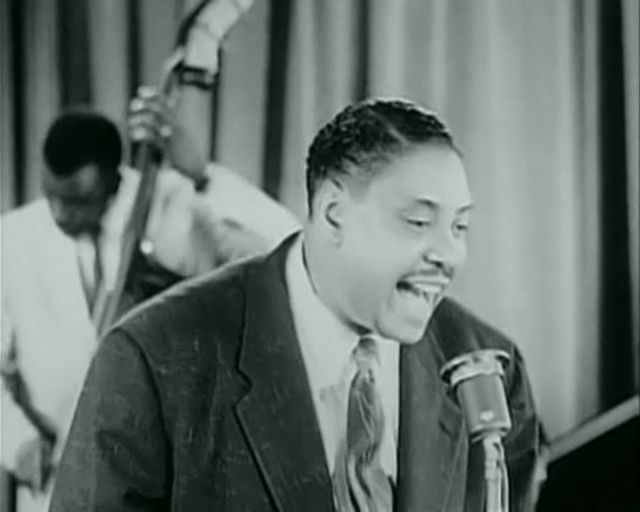
Styles: Bar Band Blues (aka Chicago/Electric Blues) 3
Jimmy Reed, Eddie Taylor, and John Lee Hooker recorded for Chicago's other significant blues label, Vee-Jay Records. In contrast, Otis Rush and Magic Sam recorded for the relatively tiny Cobra Records. Many 1960s British blues groups such as The Rolling Stones and The Pretty Things covered Reed's recordings such as "Baby What You Want Me to Do," "Bright Lights Big City," "Honest I Do," and "Big Boss Man" .
These songs continue to be played up to the present day by contemporary blues bands. John Lee Hooker's style was wholly idiosyncratic and, although he recorded much of his material in Chicago, his base was Detroit. His recording of "Boom Boom" illustrates his performance practice as a later-era Chicago blues player.

1969 - John Lee Hooker - Boom Boom (Live Video) [ 00:00-00:00 ]
While the club blues, jazz, and jump blues traditions were largely centered on the two coasts and represented the sophisticated styles of an emerging upwardly mobile, working-class, urban Black population, the bar band blues style found in midwestern cities such as Chicago and Memphis was much more the music of the industrialized working poor. The sound and the sartorial culture of the performers reflect the differences between those regions. While club blues and jump blues bands dressed in neatly tailored suits, bar band blues musicians tended to dress in everyday work or street clothes, and their music tended to be much more distorted, with much less enunciated lyrics. Even though their music was exciting and certainly met its social moment, bar band blues musicians tended to be less technically proficient and musically tutored than club blues or jump blues musicians.
With his more sophisticated brand of post-war blues, Memphis's B.B. King is somewhat of an anomaly amongst this panoply of bar band blues guitarists. Fronting a large band with horns, he simultaneously drew on the jump blues tradition, the early electric guitar stylings of T-Bone Walker, gospel vocalists, and eventually jazz arranging and chord voicing. Here is his 1950 recording of "Mistreated Woman" .
Sweet Lorraine
Just found joy
I'm as happy as a baby boy,
baby boy
With another brand new
choo-choo choy
When I met my sweet Lorraine, Lorraine, Lorraine
Sh-Boom
Oh, life could be a dream
(Sh-boom)
If I could take you up in paradise up above
(Sh-boom)
If you would tell me I'm the only one that you love
Life could be a dream, sweetheart






